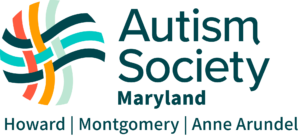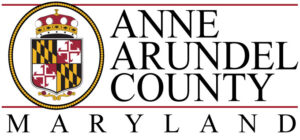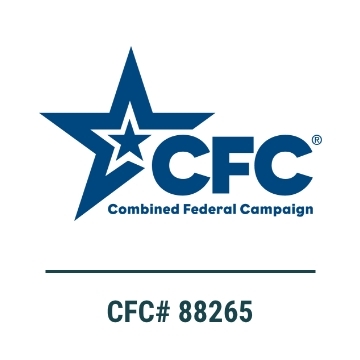Navigating the resources within one’s school can be a challenge. But did you know there is an entire stable of educators outside of the building able to assist you?
The Office of Special Education, commonly referred to as the “central office,” consists of instructional facilitators, resource teachers, program specialists, speech-language pathologists, occupational therapists, physical therapists, assistive technology specialists, school psychologists, reading specialists, and behavior specialists. It is important to know who to call when extra support is needed.
So let’s review who your special education team is in the building and outside of the building.
The School-based Special Education Team:
- Administrator
The principal or assistant principal provides on-site leadership for the instructional program. He or she may attend IFSP meetings and serve as the chairperson of the IEP team meeting. - Special Education Instructional Team Leader (ITL)
In every school, there is a special education instructional team leader (ITL). Under the direction of the school principal, the ITL provides leadership in the instructional program and assumes responsibility for the organization and administration of the special education team. - Case Manager or Service Coordinator
Each child receiving special education services will be assigned a school-based service coordinator, or “case manager.” This case manager serves as the primary contact for the family and all service providers. He or she participates in the IEP team or IFSP team meetings and in the development or revision of a child’s IEP or IFSP; assists in obtaining access to the services recommended in the IEP or IFSP; collects and synthesizes evaluation reports that might be needed by the team; and implements relevant federal and state procedures. - General Education Teacher
The general education teacher provides educational and instructional service in the general education classroom. He or she may also provide general modifications, reasonable accommodations, and testing modifications. - Special Education Teacher
The special education teacher provides specialized educational and instructional services. These services are provided through individual, small group, and large group instruction. Depending on the IEP, the services may be provided in the general education classroom or outside of the general education room, likely in a resource room. - Instructional Assistant (IA) or Paraeducator
An instructional assistant provides support to teachers and students. They may physically assist students with tasks and they may also provide instructional assistance by tailoring lessons to an individual student’s needs or assisting students with assignments. They may assist the teacher in preparing lesson plans, demonstrations, or visual aids for specific lessons. - Student Assistant (SA)
A student assistant is an HCPSS employee who provides close adult supervision in helping students with several physical, cognitive, or behavioral concerns to access education. - Temporary Employee (TE)
A temporary employee (TE) is non-HCPSS employees who provides help for schools, programs, and students. A TE is employed through a contracted service agency as authorized by the Department of Special Education. Such personnel assist students who have moderate to severe cognitive, medical, physical, or emotional disabilities, with the demands of academic tasks or functional skills, and with accessing the least restrictive learning environment.
Important specialists and team members outside your building:
The following specialists may be called upon by an administrator, instructional team leader, case manager, or parent. If you ever think your child needs additional help that is not being provided or is not being properly accessed by the school-based staff, you may ask for any of the following specialists to be contacted.
- Speech-Language Pathologist
The speech-language pathologist works with a child to help him or her develop communication skills; she or he may work with a child in a small group setting, on an individual basis, or in the general education classroom. The speech-language pathologist provides consultation to other service providers. The speech-language pathologist may also work with other staff members to develop augmentative communication systems that may include using sign language, picture boards, or voice output devices. The speech-language pathologist may refer a child to the Assistive Technology Team to provide additional consultation on augmentative communication systems or adaptations involving technology. - Physical Therapist
A physical therapist may work with a child to facilitate typical movement for gross motor skills such as rolling, creeping, sitting, standing, and walking. In addition, the physical therapist addresses building accessibility issues, and assists in the selection and adaptation of equipment that may be needed to improve a child’s posture or functioning within the school setting. Physical therapy services may be provided on an individual basis, in a small group, or in the general education classroom. The physical therapist may also consult with other services providers. - Occupational Therapist
An occupational therapist provides activities in the areas of perceptual fine motor, sensory motor, oral motor, and self-help skills. A treatment program may also include activities to facilitate typical movement patterns as well as the design and use of adaptive materials and equipment within the educational setting in order for the child to benefit from special education. The therapist may provide demonstration and instruction to assist a child in coordinating visual and motor ability in the performance of fine motor and classroom tasks. Occupational therapy services may be provided to a child on an individual basis, in a small group, or in the general education classroom. The occupational therapist may also consult with other service providers. - School Psychologist
The school provides consultation and evaluation in the areas of cognitive development, social-emotional development, and behavioral intervention. The school psychologist may conduct observations to gather information to assist other service providers in implementing the IEP, IFSP, or 504 Written Individualized Plan. In addition, parent counseling and training may be provided on a short term basis when appropriate. - Assistive Technology Team
The “AT Team” includes speech-language pathologists, an occupational therapist, a physical therapist, a psychologist, an itinerant teacher of students with visual impairment, and an instructional assistant. The team may observe, evaluate, and provide consultation services for children who need augmentative communication systems or adaptations involving technology. The team maintains a resource center with devices, materials, and information and provides training to parents and staff members. - Behavior Specialist
Each school is assigned a behavior specialist, who is available to help construct behavior intervention programs to address the complex needs of youngsters with behavioral challenges. The specialists also design ongoing staff development opportunities for teachers and instructional assistants. - Elementary Reading Specialist
Reading specialists support teachers and students in a number of ways. They work with staff members to organize and plan effective instruction, communicate information about language arts and reading, provide ongoing staff development, and initiate and oversee tutorial and volunteer programs to assist students in need. Reading specialists also work with classroom teachers to help design specific programs for students needing additional help within the general classroom setting. In addition, reading specialists provide ongoing instruction to individual or small groups of students in need of a program to accelerate their reading growth. - Itinerant Teacher of Students with Visual Impairments
This teacher provides assessment, consultation, and individualized instruction in special techniques used by children who are blind or partially sighted. The techniques include the use of adaptive equipment, Braille, as well as orientation and mobility instruction. To be eligible for service from the itinerant teacher of students with visual impairments, a child must have a Physician’s Assessment Report that states he or she has a visual impairment that adversely affects performance in school. A referral may be made by a parent, teacher, principal, school nurse, or eye doctor. - Itinerant Teacher of Students with Hearing Impairments
This teacher provides consultation and instruction in total communication, language development, auditory training, and skills needed in the classroom setting. Consultative services include meetings with school staff members, parents, educational interpreters, and the audiologist. To be eligible for service from the itinerant teacher of students with hearing impairments, a child must be identified by an audiologist as having a hearing impairment that adversely affects performance in school.
© Maryland State Department of Education, Division of Special Education/Early Intervention Services



























